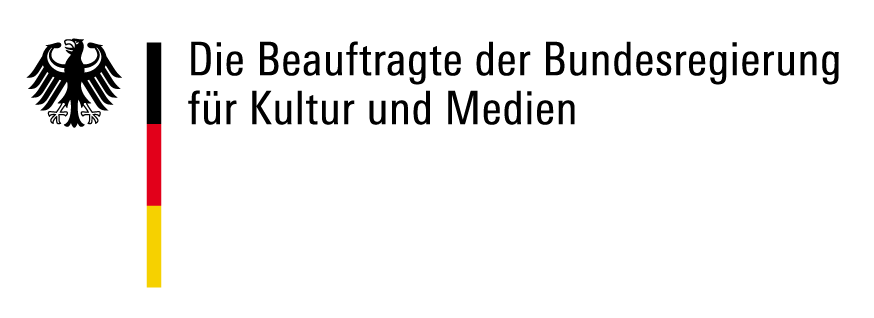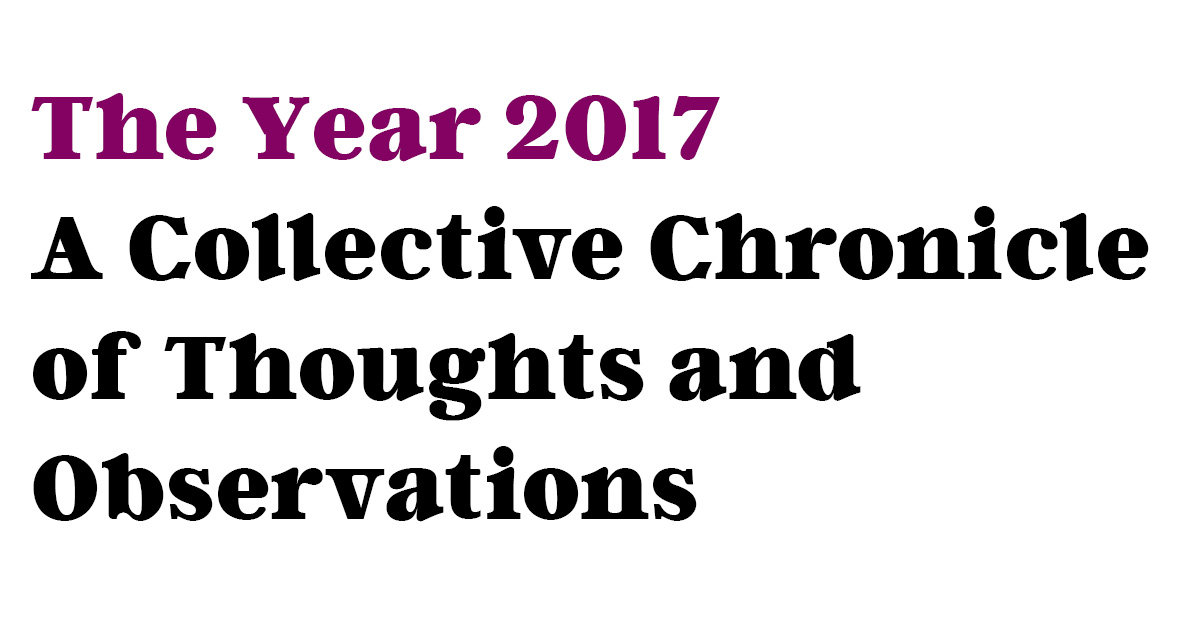FFT Düsseldorf
The Year 2017
A Collective Chronicle of Thoughts and Observations
Welcome to what is going to be a collective chronicle of the year 2017! This journal will follow the general change that we experience in our daily lives, in our cities, countries and beyond, in the political discourses and in our reflections on the role of artists and intellectuals. Originating from several talks and discussions with fellow artists and thinkers FFT feels the strong need to share thoughts and feelings about how we witness what is going on in the world. Week after week different writers, artists, thinkers and scientists will take the role of an observer as they contribute to this collective diary.
#8 February, 20th - 26th
Claudia Bosse
at the german historical museum (dhm) today with fanti. in the exhibit on german colonialism. visitors with headphones stagger through the tight spaces between - i think - 8 intertwined sections. jostle the other visitors. the acoustic space bears them out in their choice of paths and their territory. others are disempowered. territorial negotiations in a conquest of information in this exhibit of all places.
strange agglomeration of information with displays often hiding from view. communication as a political stance of self-condemnation obscures the actual information and contexts. massive doubt that representing a critical position has anything to do with forming a critical position. german colonialism is bad. ok. and simultaneously a hodge-podge of knowledge, superficial information strung together in fragments. no knowledge or new thought can come of it.
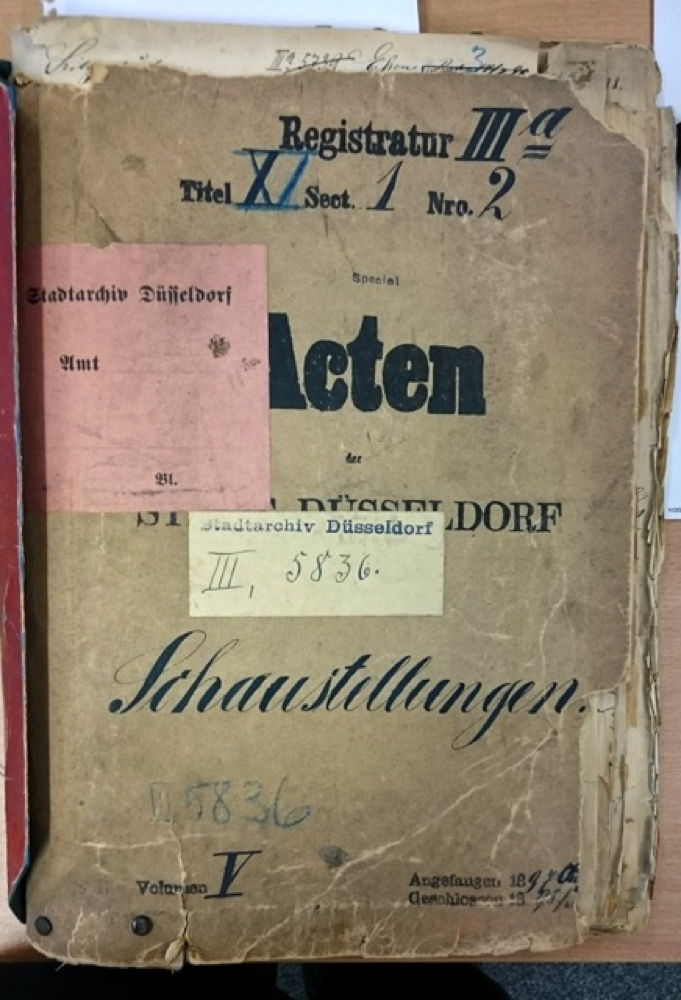
a contradiction to the weird desire to combine different media, instruments, knowledge and contexts, which we found in municipal archives of düsseldorf in files entitled “expositions”. in inquiries to the police department or to the head major (from 1880-1904), in which economies, which directly communicate themselves in the signet, the stationary and also in the language games or the humbleness of the request. in requests for a place and time for a presentation of this or that show. commercial shows, combining ethnographic cabinets with death masks of goethe, a young arab in wax, stuffed and prepared animals and sponges. moreover, with certificates of this or that professor, advertising this or that academy. even if much is problematic, it conveys an experimental surplus.
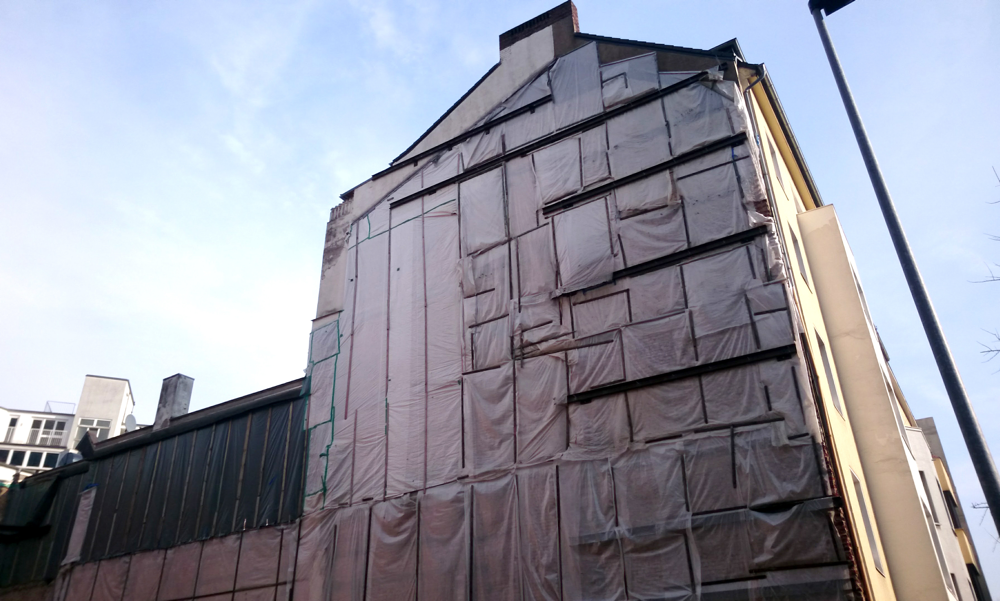
what does the one (the exhibit in the dhm) or the other (the documents from 1880-1904) say about our day and age, our production of knowledge, our ideological contexts and fears? am i allowed to think, conclude and produce meaning? be curious, greedy or am i required to reproduce ideological patterns?
of course not. what potential lies in a theater that only negotiates the contract of its conditions in the moment of its occurrence with everyone present? i love theater! because it is capable of exactly that. and that resolving the condition is part of its occurrence.
met various friends yesterday in berlin between science and art, who are all wrestling with wanting to partake in a segment that they consider important, want to act on and implement, understand passions and interests as part of their (artistic) actions, but come up against the selective processes and criteria of working places or funding bodies. struggle with it. all these potentials lying in wait are meant to merge, organize and think, design and implement together. why does this not happen? and why are the institutions that manage resources and symbolic capital so damn powerful? when i think of the documents from 1900, you just have to do it! organize and do it. strange comparisons, i think, as i write this.
we as theaterkombinat, momentarily have a planning deficit. for our opera “poems of the daily madness”. the project “168hours (in tribute to franz erhardt walther)” wasn’t planned, emerged out of desire for an experimental set-up, as research for the opera and aspects of daily life. and out of enthusiasm for the sculptor franz ehrhardt walther and the vacant lot available to us. a wasteland of 700m2, visible on all sides from the surrounding flats, paired with the question under which conditions, which corporealities, which situative conditions can everyday life be written, described; actions that are not perceived, but instead performed, observed on others as routines, etc. and how do information and political ideologies penetrate these actions? but the actions exist on a day to day basis. contain us and we them.
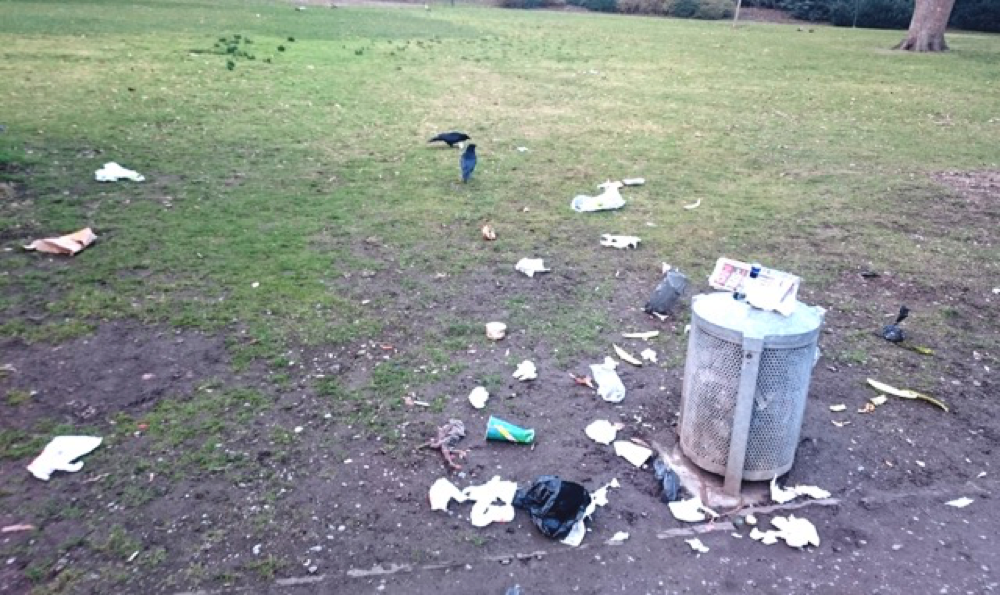
in a conversation with the artist, who i have invited to join me in implementing the 168 hours in the vacant lot, conflict follows after initial enthusiasm for the project and my concept: “i won’t do it under this amount”. there it is again, the arm of neoliberal extension. “if i don’t get the money, i’d rather not do it, it’s your project.” i understand this position, but i still don’t have more of a budget at the moment. and then again the question, how we can produce in the independent sector. how to deal with the financial squeeze, the acceptance of so and so much money; implementing things that are actually impossible, out of interest and passion.
constantly demanding this approval from others, who you want to work with, over and over again. but always knowing again that you are the neoliberal extension of this exploitation. at the same time wanting to insist that you don’t want to let your fantasy be determined by the economies that you are capable of generating. questionable resistance, which thinks past many things, but i am simply not capable of solving this paradox. we end in a discussion about labor unions, worker’s participation in profit. i cannot close this gap and simultaneously i also don’t want to spend more time with the allocation of resources. so is this work then a political lie? it is unclear, whether we will do it together.
return to vienna. i sort in my head was comes next, what things i haven’t thought through to the end, which emails i should write in the coming two days. which appointments i must make, what things we need to talk about in our team. for which “projects” do we have to think one step further parallel to one another and how i should organize my head and my time. permanent interweaving of parallel inquiries and practices, sometimes leading to short-term capitulation, sometimes to captivating insights. always longing to be allowed to think only within one piece, to feel the resonances in the body and be allowed to walk around with the questions. often however the administration of the past, so that the planned future can become the present. different times parallel.
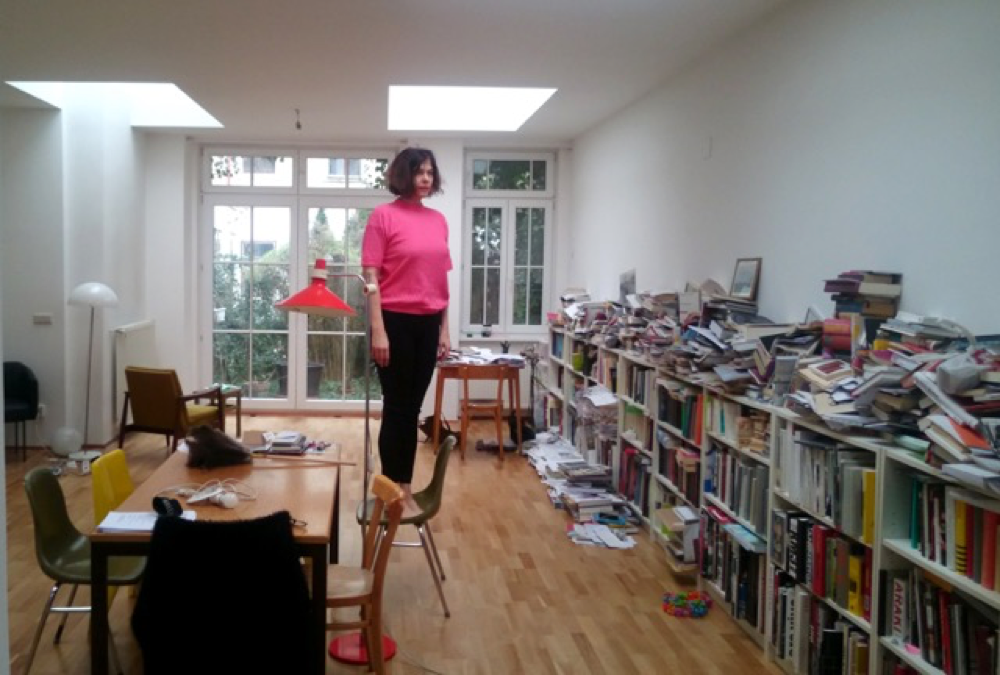
the dissident half-brother of kim jong-un poisoned in kuala lumpur, protests in england against trump visit. a german director has died, that is, he probably committed suicide, but i’m not sure. trump’s new security advisor has said, he, who treats an iraqi badly, works for his enemy and has written a book about the mistakes of the vietnam war. in the discussion on srebrenica doubts that the genocide of muslim bosnians was ordered by serbs, etc. etc. what is this knowledgability? what effect does it have, with its zapping through regions, conflict zones and issues? occupation with the trump craze has lessened these last days. not only because i had no internet. after the bannon-trump hysteria, now a bit of abstinence. thoughts conceived through information or thinking for yourself? but from where about what? determine one’s own place. also time. battle with time and attentions. sometimes unmanageable. desire for something to show consequences.
between resistance and escape as daily strategies of overwhelming oneself.
whole day in the studio in vienna.
the heating is on strike, the annual report of our activities to the city of vienna.
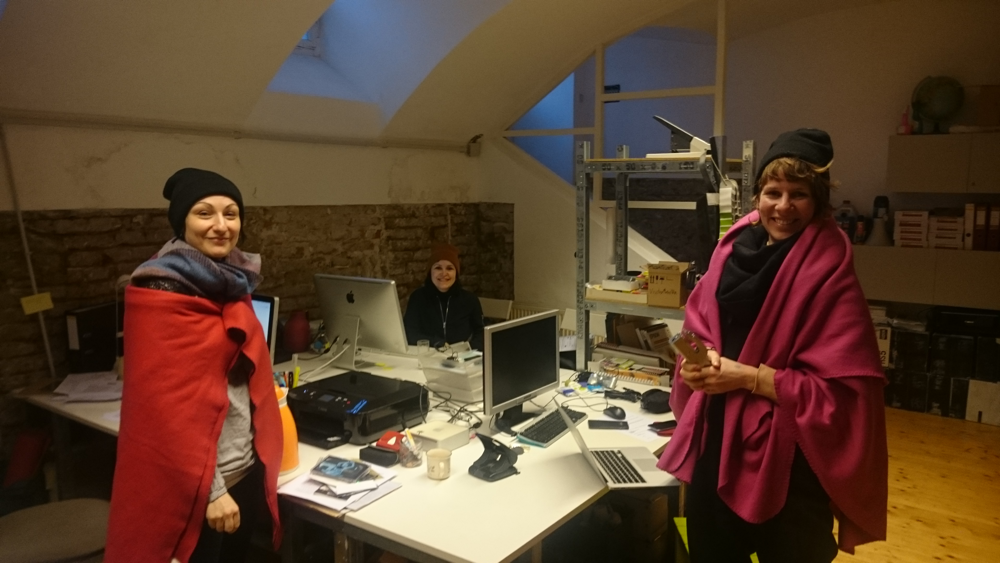
number of spectators, number of events. what defines as events etc. the bureaucracy and art of presentation. budgets, an application was rejected, but instead we received a prize for a piece from last year. i don’t understand, but money. a long skype with nastya, in which she introduces the new team members oksana and nino in kiev, who will be responsible for communication and conceptual work on-site. these first contacts always per skype: what is the impression of the portrayed, pixelated person? detailed sections of the surrounding space and images, that sometimes freeze. their references are augusto boals, “theater of the oppressed”, why not. haven’t heard it in a quite a long time, application with different public spheres. attempts to discuss the difference between cultural activities, representing minorities and artistic production, which involves temporary heterogeneous audience groups. it’s about fundamental agreements: should only professionals participate in the urban interventions or others as well? i want to clearly open the field and also address residents of the places, where we work and intervene. residents; therefore the question whether the working language should be english or would that exclude too many? also the question, whether it should be a representative group or a call, spread as widely as possible, which can extend to all areas of urbanism, political activism, performance, philosophy and also the 5 neighborhoods. what must exist parallel to facebook and when should the campaign start, if this part of the project takes place in may, right after the song contest? after the skype, vicky and i have the feeling that it’s a super team and we are looking forward to work in the ukraine.
vladimir comes and we speak about “space as crime”, his contribution, the concept and he tells us about the conference on “fantastic institutions” at buda. how exhausting it was and how stressed the people.
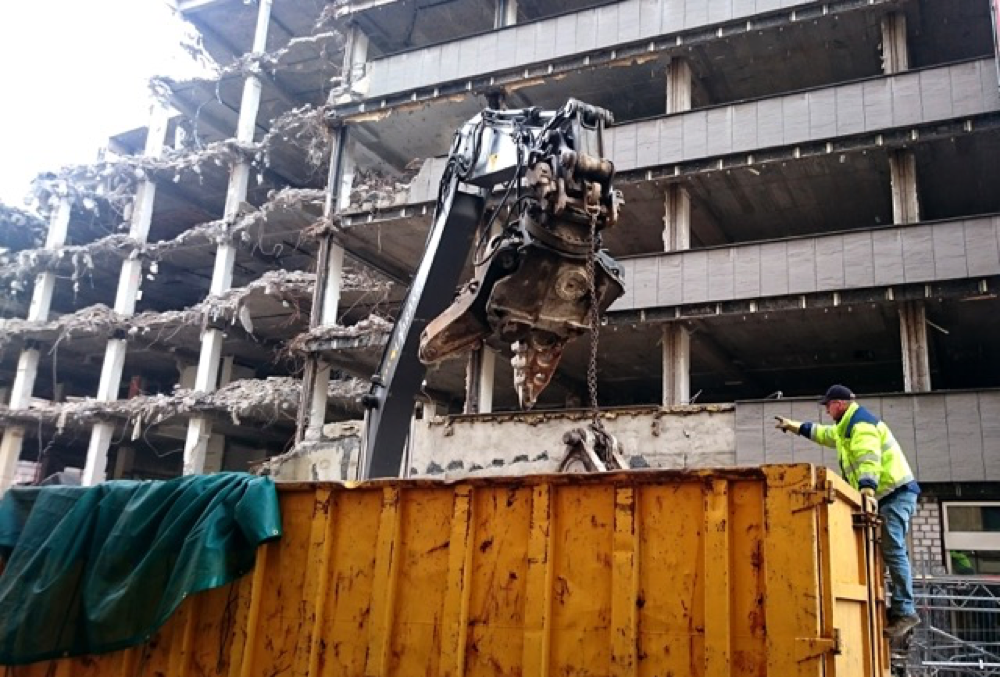
in the evening i meet philipp, we discuss what makes an installation scenography. what is the nature of performance time and which perforations does it need, so that the space and the people present become activated, can appropriate? if the performing body holds it all together, becomes a wandering stage, centralized, that cannot happen. what community can emerge, when watching someone doing something? solitaire and community.
reinhold is in vienna to help work on the application for artistic research “space as crime”. for the theory, as he says. general questions, how a body in space negotiates, inscribes, co-produces space in a specific place. what is the knowledge about spaces and what the atmospheric charge, the emotional negotiation? that which is already known about a space, that which the individual supports, repeats and informs. what opens the strategy of the sidelines, the insignificant, the details; how does it provide insight into a place, being consciously positioned with visual excerpts and surround-sound perceiving, describing, associating, deducing, etc. and as a deliberate attendee simultaneously changing. why would i be interested for research in the three cities vienna, cairo and istanbul and their associated border regions. i realize, that is it difficult to translate my assumptions and my experiences into a clear scientific question. i recount details, but am unable to condense them into a lucid theory. this in-between space angers me, a gap in my thinking that i can’t explain at the moment.
alone in the studio, günther composing next door. i attempt to sort the discussions of the day before, overcome the mental black-out. before reinhold left, we spoke about latour and his black-box quote. that every artist has a black box, which is not necessarily accessible and that i must open it. nicely said, difficult to do.
tonight performance in the tanzquartier halle g, “a piece to remember to tell”, a concept by silke and peter. i participate as a performative witness. a meeting of the viennese scene. after no longer receiving funding, milli became an elementary school teacher and now dances for her own enjoyment. 3 have selected a piece that they saw at the tanzquartier and recount it in 10 minutes. a witness watches and repeats, while now the 2. witness, who was previously outside, watches and then passes it on to the 3. witness. 3 narratives take place in parallel based on the same system. 12 performers per night.
i love it to perform in settings, in which you have to react in the moment. afterwards everyone in the studios. one says: “it is like saying goodbye, the end of an era”. oh dear! because many are there that i haven’t seen in a long time, something like the older guard of the dance and performance scene. jack says, a change of paradigm. we speak about the appropriations of a highly endowed festival, now wanting to elevate subculture to high culture with 13 million. that the tanzquartier will be closed from april until the end of the year. that theory will probably be eliminated. brut too – well subsidized – will go into the city, occupy other spaces because of the renovations and the volkstheater will move into the 5th district. similarities everywhere, shifts and appropriations of strategies and acts of resistance i.e. the strategies, once created out of thinking about alternatives, now become mainstream positions. terminologically politically loaded hipster art, no, now it’s about culture, no longer about art. how can we criticize that, without resorting to this incredibly conservative discourse?
if people with a similar profile and taste sit in all important institutional positions in vienna, where is the dynamic and the diversity, the controversy? we decide to meet. finally a small subversive beginning again from artists. the big institutions are closed from summer until the end of the year. and where will the art makers go then? is “poverty” once again prerequisite for something to happen? sad, but often true.
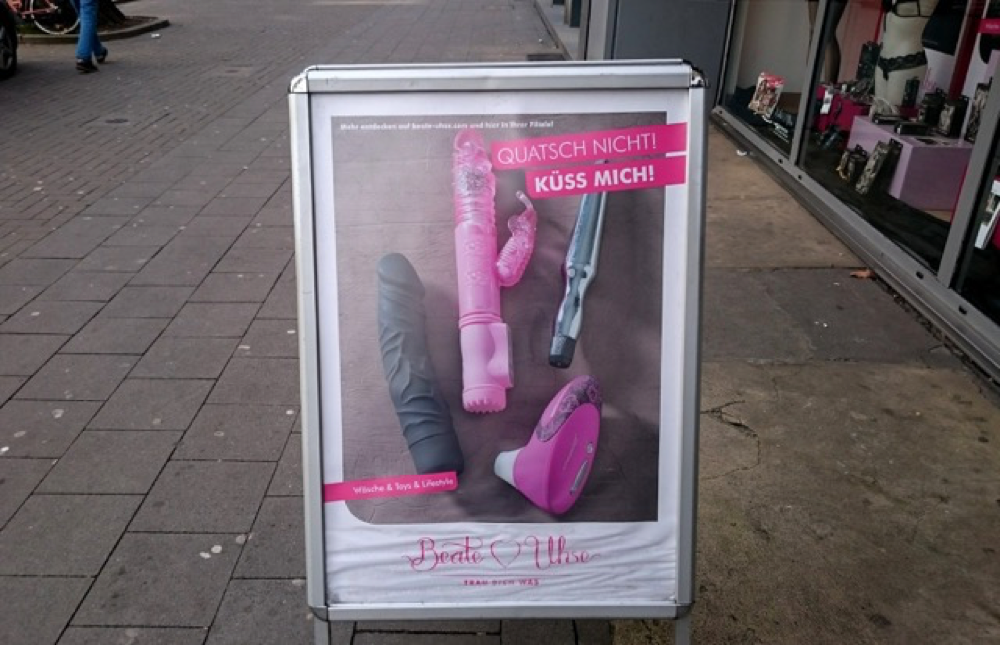
the next evening, i go again to the tqw, although somewhat exhausted. pleasure and obligation. exhausted, because we discussed for several hours how we can be private, as another quality of being-together, when we work together so often and intensely. and how not everything can be greedily eaten up; greedy from all the questions, concerns, projects and plans. sometimes i ask myself, what is truly private? since when does this word exist? now that i am watching the performance from the beginning – yesterday i had to wait backstage during the beginning – i think about divided spaces and the distribution of attentions, the relationship between the negotiated and the negotiators. today a different 12 artists from the viennese choreography and performance scene. i can’t follow the first two “rounds”, over-eager and fast-paced information. someone is being a pain in the neck, as so often: damn, how difficult to accept another’s interest, the invitation to happily seize, accept and expand on it? i want to join in thinking – which is rarely possible – and not just be condemned to watching attractions. neither politically nor artistically.
Claudia Bosse is a choreographer, artist and the artistic director of theatercombinat. After studying theatre directing at the Hochschule für Schauspielkunst Ernst Busch Berlin, she worked in the field of experimental theatre between (spatial) choreography, (choral) theatre and urban intervention. She generates ‘political hybrids’ as site-specific settings and different media. Claudia Bosse develops international installations and works for museums, architectures, theatres, and urban spaces. She teaches, delivers lectures, publishes, initiates and participates in research projects and continuously collaborates with artists and theorists of different genres.
theatercombinat.com
claudiabosse.blogspot.com
#1 January 1st - 8th Jacob Wren
#2 January 9th - 15th Toshiki Okada – japanese version
#3 January 16th - 22nd Nicoleta Esinencu – romanian version
#4 January 20th - 30th Alexander Karschnia & Noah Fischer
#5 January 30th - February 6th Ariel Efraim Ashbel
#6 February 6th - 12th Laila Soliman
#7 February 13th - 19th Frank Heuel – german version
#9 February 26th - March 5th Gina Moxley
#10 March 6th - 12th Geoffroy de Lagasnerie – version française
#11 March 13th - 19th Agnieszka Jakimiak
#12 March 20th - 26th Yana Thönnes
#13 March 30th - April 2nd Geert Lovink
#14 April 3rd - 9th Monika Klengel – german version
#15 April 10th - 16th Iggy Lond Malmborg
#16 April 17th - 23rd Verena Meis – german version
#17 April 24th - 30th Jeton Neziraj
#20 May 15th - 21st Bojan Jablanovec
#21 May 22nd - 28th Veit Sprenger – german version
#22 May 29th - June 4th Segun Adefila
#23 June 5th - 11th Agata Siniarska
#25 June 19th - 25th Friederike Kretzen – german version
#26 June 26th - July 2nd Sahar Rahimi
#27 July 3rd - 9th Laura Naumann – german version
#28 July 10th - 16th Tom Mustroph – german version
#29 July 17th - 23rd Maria Sideri
#30 July 24th - 30th Joachim Brodin
#33 August 14th - 20th Amado Alfadni
#35 August 28th - September 3rd Katja Grawinkel-Claassen – german version
#38 September 18th - 24th Marcus Steinweg
#43 October 23rd - 29th Jeannette Mohr
#44 May/December Etel Adnan
#45 December 24th - 31st Bini Adamczak
#21 May 22nd - 28th Veit Sprenger – german version
10.6. #future politics No3 Not about us Without us FFT Juta
Geoffroy de Lagasnerie Die Kunst der Revolte
21.1. #future politics No1 Speak TRUTH to POWER FFT Juta
Mark Fisher
We are deeply saddened by the devastating news that Mark Fisher died on January 13th. He first visited the FFT in 2014 with his lecture „The Privatisation of Stress“ about how neoliberalism deliberately cultivated collective depression. Later in the year he returned with a video-lecture about „Reoccupying the Mainstream" in the frame of the symposium „Sichtungen III“ in which he talks about how to overcome the ideology of capitalist realism and start thinking about a new positive political project: „If we want to combat capitalist realism then we need to be able to articulate, to project an alternative realism.“ We were talking about further collaboration with him last year but it did not work out because Mark wasn’t well. His books „Capitalist Realism“ and „The Ghosts of my Life. Writings on Depression, Hauntology and Lost Future“ will continue to be a very important inspiration for our work.
Podiumsgespräch im Rahmen der Veranstaltung "Die Ästhetik des Widerstands - Zum 100. Geburtstag von Peter Weiss"
A Collective Chronicle of Thoughts and Observations ist ein Projekt im Rahmen des Bündnisses internationaler Produktionshäuser, gefördert von der Beauftragten der Bundesregierung für Kultur und Medien.
